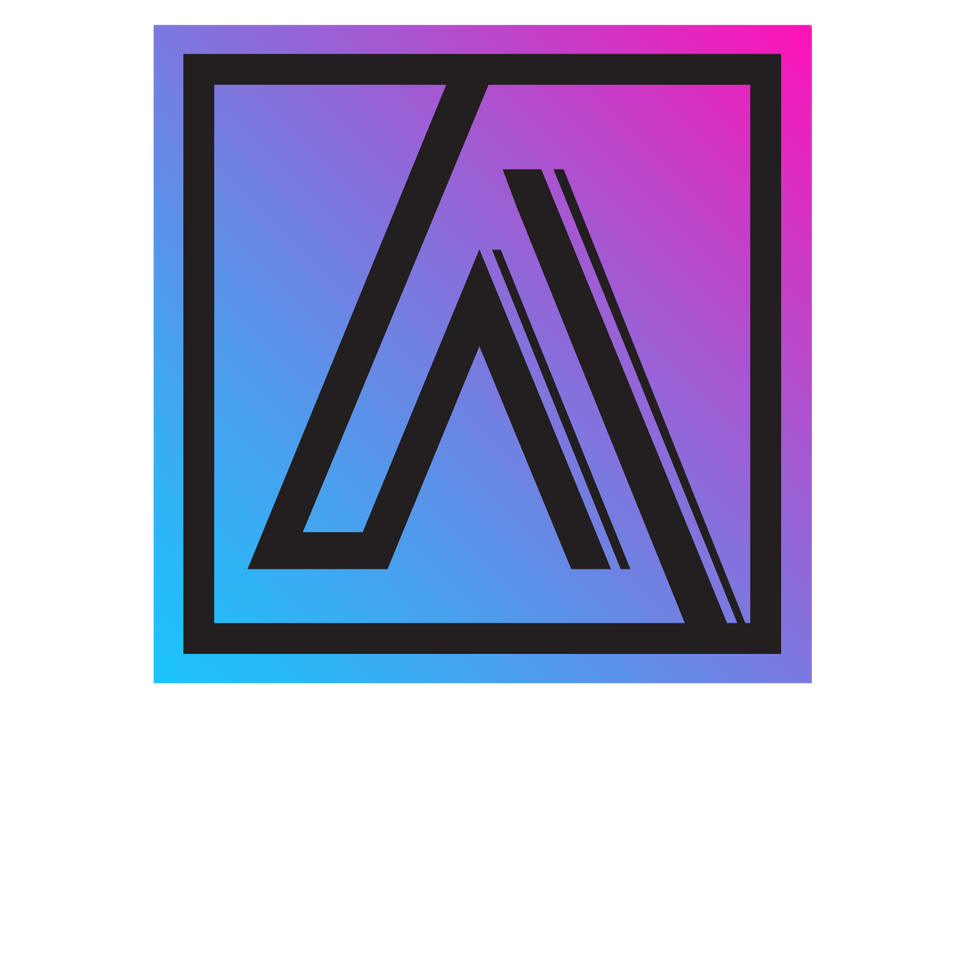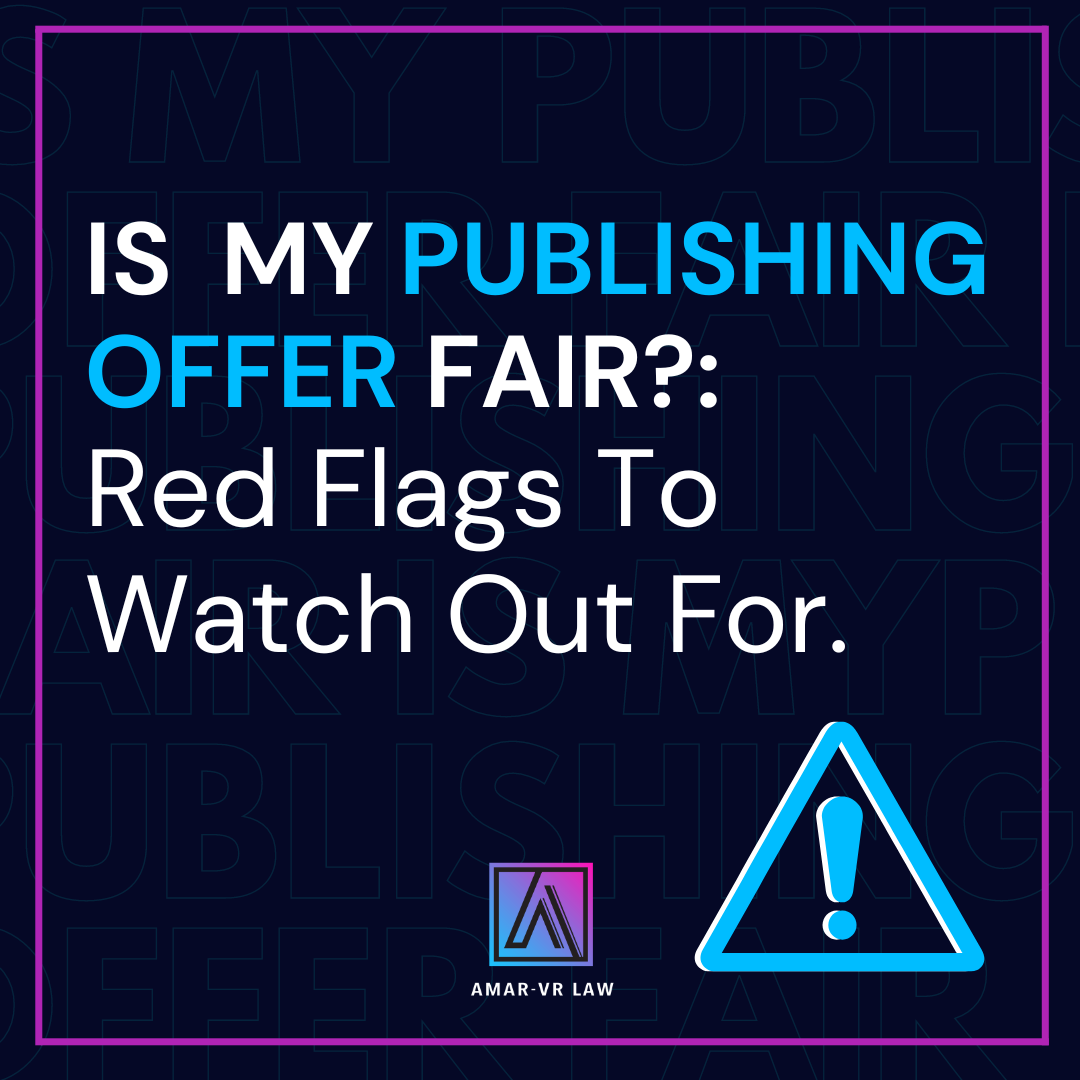
This article is for educational purposes only. Nothing in this article shall constitute legal or other professional advice or an opinion of any kind. Please contact Amar-VR Law, or your own legal counsel, if you have any questions regarding a specific legal issue.
Publishers are key players in the Video Game industry, and provide development studios with opportunities that wouldn’t be available to them using their own resources alone. However, signing a Publishing Agreement without proper legal guidance can be a risky move that could potentially harm your Video Game and reputation as a developer.
In this blog post, we will review the common elements seen in fair publishing agreements, and provide useful tips for negotiating with publishers to ensure that your game and intellectual property stay safe.
Read on for the red flags to watch for in your Publishing Agreement!
What Should My Payment and Revenue Splitting Terms Look Like?
Somewhat obviously, the payment terms in your Publishing Agreement will be one of the biggest factors to consider when reviewing your publishing offer.
When it comes to Publishing Agreements in the Video Game industry, fair payment terms can take a number of different forms.
One common provision you’ll need to know about is called an ‘advance’, which is a sum of money provided to the developer, either in a lump sum or over time as milestones are achieved. Frequently, the publisher will require repayment of their advance before the developer receives revenue from Video Game sales. This means that your income will depend more heavily on the success or failure of your game, as an unsuccessful product could lead to zero payment for your team’s work.
You also need to look into the proposed terms for revenue splitting, which may only begin once an advance is recouped. Be sure that these terms explicitly state what percentage of revenues from the Video Game sales will go to the publisher and the developer. If any details here seem vague, be very careful before signing the agreement, and ask for more clarification.
If you aren’t receiving an advance, try to negotiate a higher percentage of revenue, since the publisher won’t have any upfront costs. You can also consider a tiered revenue structure, which increases the revenue percentage you receive based on the number of copies that sell.
Payment terms are one of the most important things to consider when negotiating a Publishing Agreement. Involving a Video Game Lawyer while working out the compensation details can help you avoid losing potential income for yourself and your studio.
Who will Own the Intellectual Property when the Video Game is Finished?

You’ve put in the hard work, and the game has hit the market. Now, who owns the rights to the fruits of your labour?
If a publisher is providing funding for development, they will often include a clause that grants them ownership of any Intellectual Property that your team creates. Naturally, as the creator of these assets, your team will likely desire ownership over the IP as well.
So, what’s fair in this situation?
When it comes to IP ownership, publishers tend to understand the desire for developers to retain the rights to their creative assets, so if you’re willing to compromise on other terms, it’s possible that you can accept the offer and continue to own your IP.
Examples of common counter-offers include favourable licensing terms for your IP, ownership of only the assets they directly funded, or ancillary rights for future projects. We will explore the latter in more detail in part 5 of this article.
The ownership of Intellectual Property can determine the financial future of your Video Game studio. Lucrative opportunities can arise if you hold the rights to IP associated with a best-seller or cult favourite, so review the relevant terms in your Publishing Agreement very carefully before accepting an offer!
How Much Influence Should a Publisher Have Over Video Game Development?

If you’re fairly new to the Video Game industry, it can be helpful to have an experienced publisher involved in the development process. Not only can they provide valuable funding opportunities, but they also have connections to industry leaders that can help with research, testing, marketing, and more.
However, if your Publishing Agreement includes terms that inhibit your ability to make creative decisions, you might feel like you’re losing control of your Video Game altogether.
It’s important to negotiate a deal that allows your team and the publishing company to each have a say in the matters that affect you most.
One way to do this is to seek an agreement that includes approval rights, or audit clauses, for the development team. This allows the developer to approve or disapprove of major decisions before the publisher enacts them. Similarly, you will likely see publisher approval rights, which allow them the same decision-making power when it comes to things like marketing or distribution.
This is a fair way to provide each party with some control over the end product, and protect both parties' interests.
Approval rights are a powerful way to ensure that your Video Game turns out the way you imagined it. Be wary of working with a publisher that refuses to compromise on this point, as they may have different plans for the Video Game you envisioned!
What is the Typical Scope of a Publishing Agreement?

When looking over your Publishing Agreement for the first time, you’ll want to make sure that all of the points below are included, with specific details to add clarity to each one. Contracts with vague wording can leave aspects of the agreement open to interpretation, which may lead to legal issues down the road.
Usually, a Publishing Agreement will highlight the following:
- Contract Duration: This will state how long the publisher has exclusive rights to distribute the Video Game. This can be anything from 5-10 years (typical) to the lifetime of the copyright (not recommended). A shorter duration might offer you greater flexibility and control over the Video Game, but can make it difficult to secure funding. In contrast, a longer contract brings greater financial stability, but may also limit the ability to make changes or enter into other partnerships.
- Geographical Region: Your contract should state the specific territories in which the Publishing Agreement will be valid. You may have deals with a number of publishers across different markets.
- Non-Compete Terms: Certain restrictions may be placed on the developer to prevent them from creating similar games throughout the contract duration. This protects the publisher's investment and prevents the developer from competing against them in the same market.
- Termination of Agreement Procedures: Your contract should list what will happen when the Publishing Agreement expires, as well as the conditions under which each party can end the agreement before the contract is up.
Having an airtight Publishing Agreement is critical to keep your team and your hard work protected as you launch your Video Game. Consider seeking legal guidance if you are managing multiple Publishing Agreements across markets, or have concerns about the offer you’ve received. It’s easy to find yourself in contract chaos, and not as easy to get out!
What are Ancillary Rights in Video Game Publishing?

Earlier in this article, we mentioned a concept called “ancillary rights”, which can be used as leverage when negotiating your Publishing Agreement.
Ancillary rights are the rights to secondary sources of revenue that can stem from the Video Game's IP, beyond the core game itself. These rights may include merchandise, soundtracks, and the rights to sequels, film or television adaptations, and other derivative works.
Ancillary rights can be used as a bargaining chip when negotiating a Publishing Agreement, as the developer can leverage them to gain more rewarding terms for themselves, such as a higher revenue share, more creative control, or the retention of IP rights.
You can use clauses like the
Right To First Refusal to negotiate a more favourable deal for your studio. This particular clause gives the publisher the first chance to take on any derivative works that are created using your IP, before the project is offered to any other publishing companies.
Counter-offering with ancillary rights can be an effective way to persuade publishers to give up their desire to own your IP, ensuring that your studio is treated fairly in terms of your creative vision and financial compensation.
Conclusion
It's easy to get swept away in the excitement of signing an offer from a big publishing company, but remember that the terms of the Publishing Agreement will affect your game and studio for years to come.
Don't rush into a Publishing Agreement - be sure to negotiate any terms that you aren’t comfortable with to protect your hard work.
Contact Amar-VR Law if you need clarity on the terms of your Publishing Agreement, or to prepare yourself for productive negotiations with the big names in the industry!

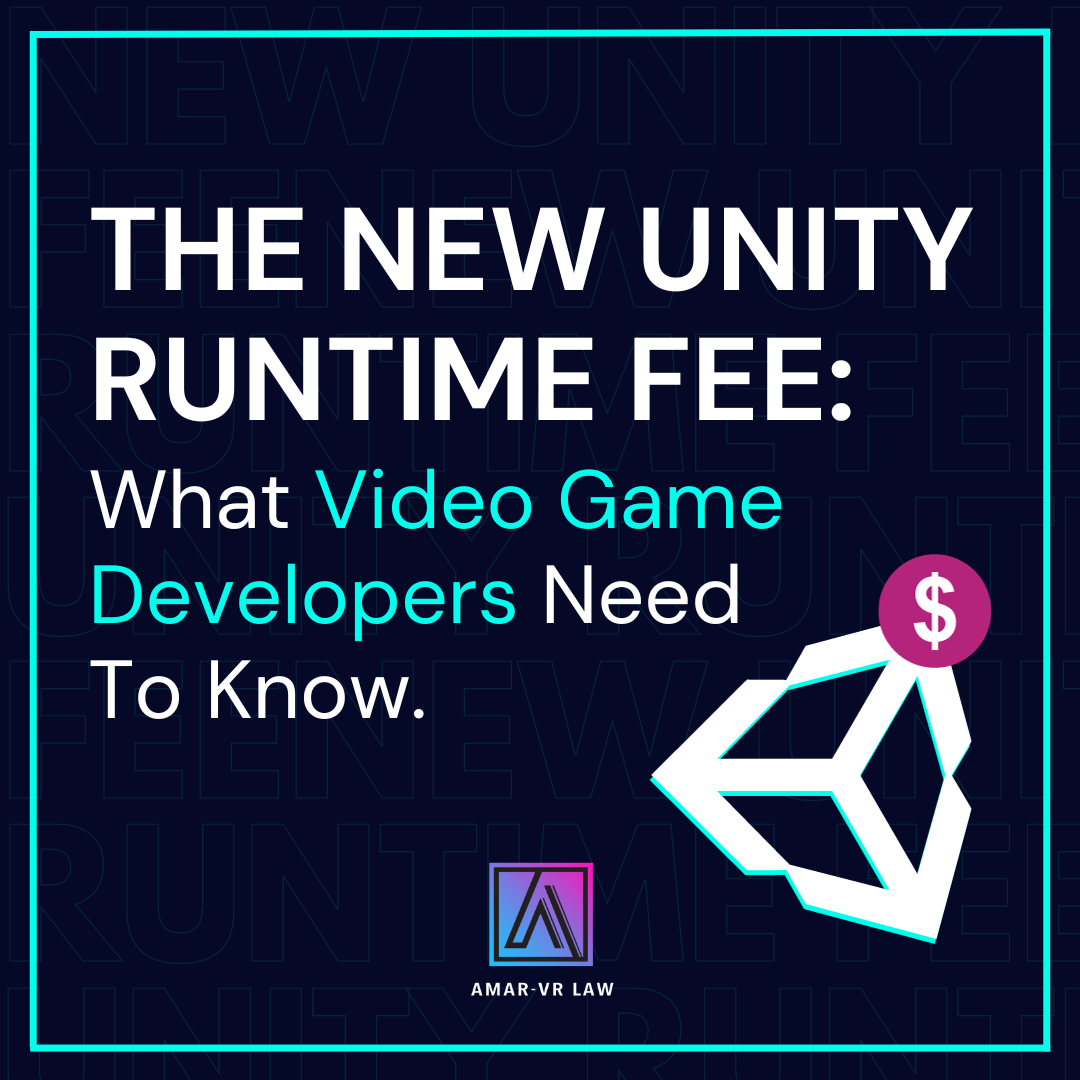
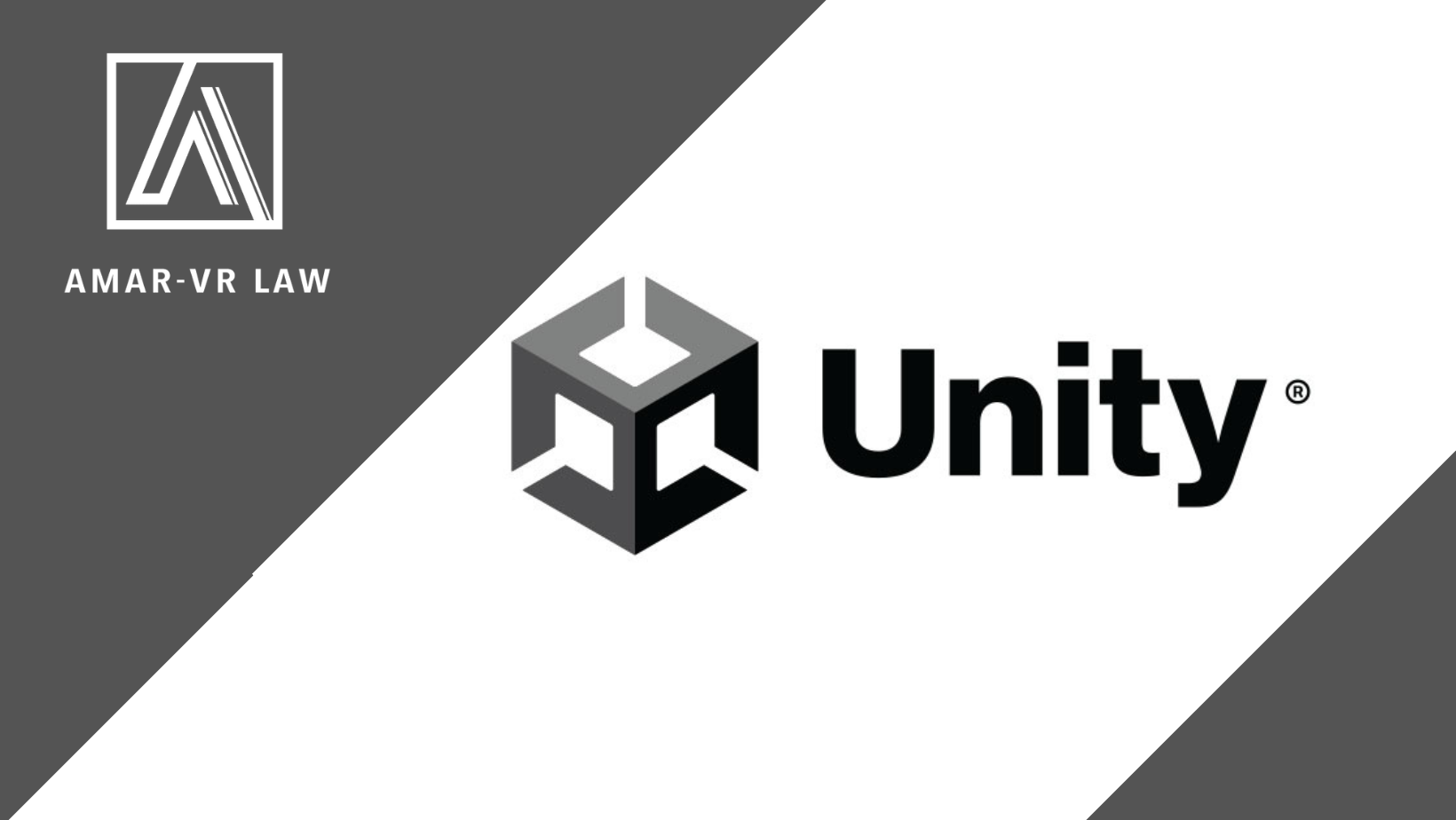
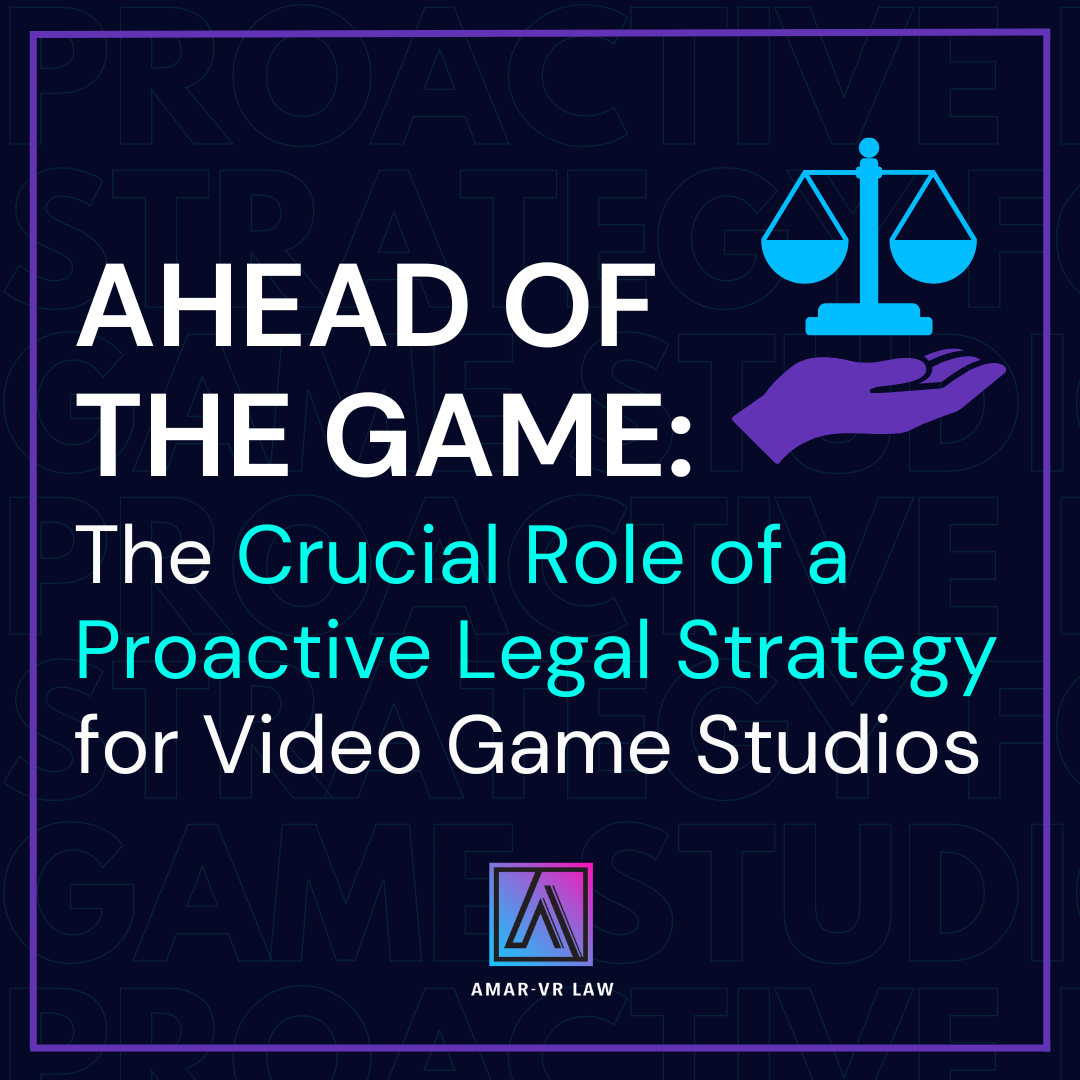
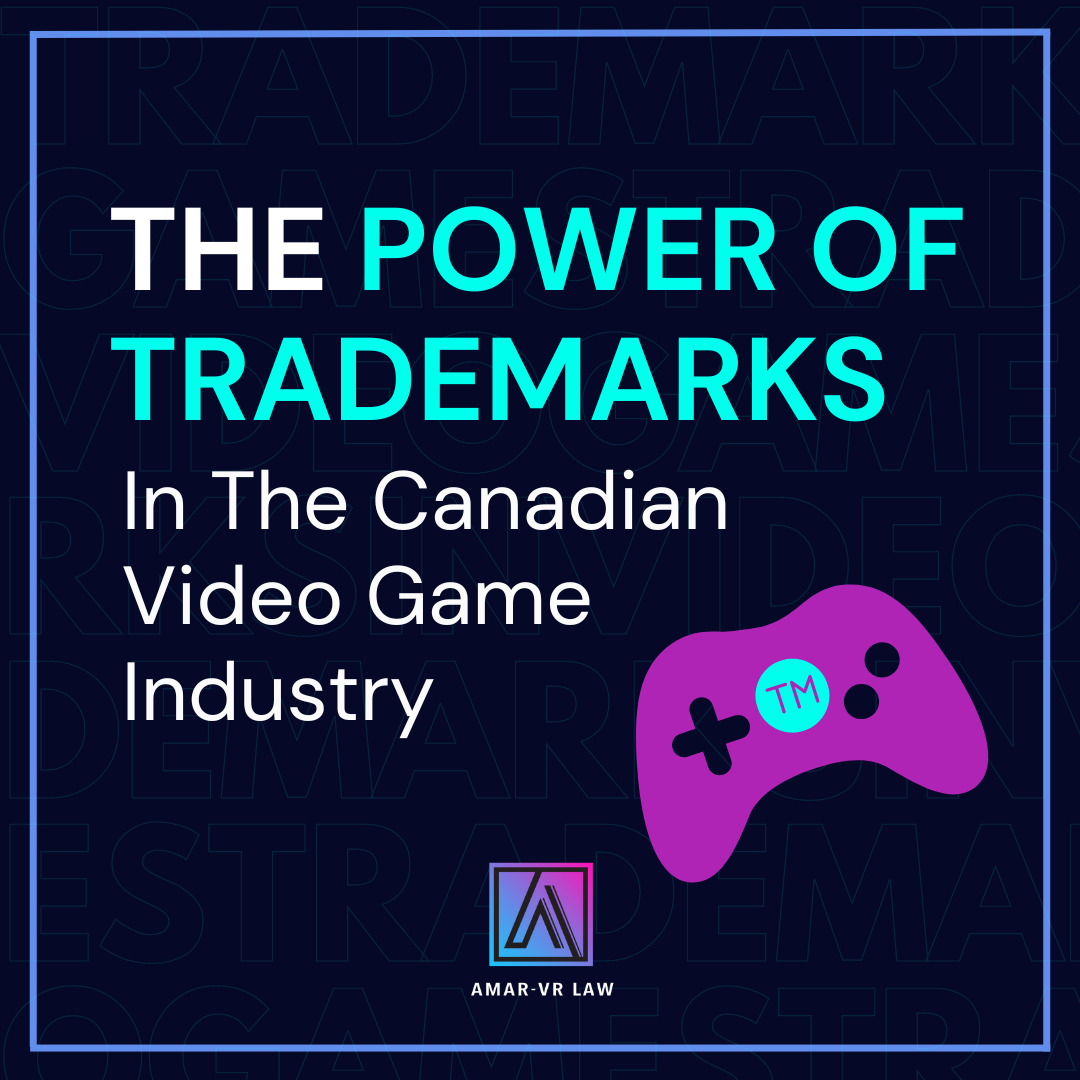
Address:
100 King Street West,
Suite 5700
Toronto, ON
M5X 1C7
Email: hello@amarvrlaw.com
Phone: 289-919-5929
Business Hours:
Monday: 10:00 AM – 6:00 PM
Tuesday to Friday: 9:00 AM – 5:00 PM
Saturday 9:00 AM – 12:00 PM
Address:
100 King Street West,
Suite 5700
Toronto, ON
M5X 1C7
Email: hello@amarvrlaw.com
Phone: 289-919-5929
Business Hours:
Monday: 10:00 AM – 6:00 PM
Tuesday to Friday: 9:00 AM – 5:00 PM









